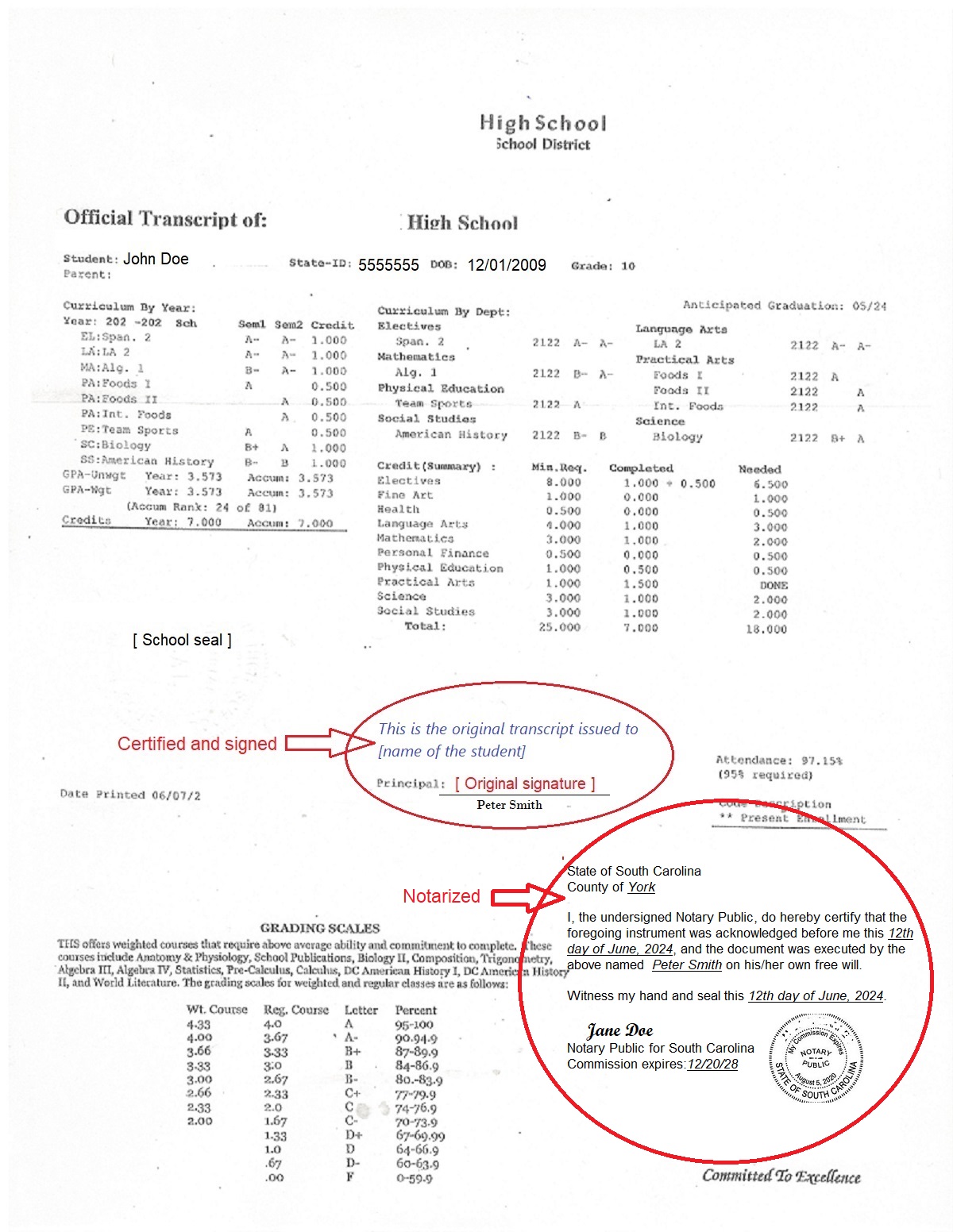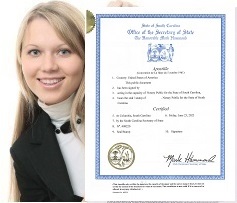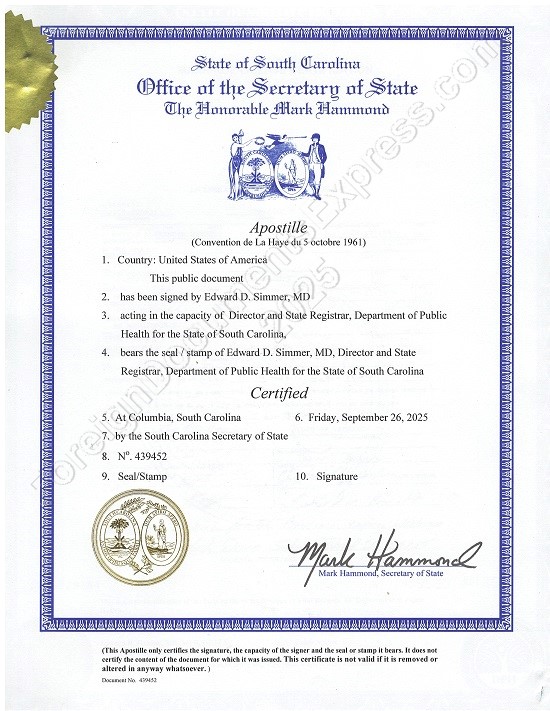South Carolina apostille guidelines:
The following documents qualify for South Carolina apostilles:
 notarized by a South Carolina Notary Public
notarized by a South Carolina Notary Public 
South Carolina elected or appointed officials
 documents issued by South Carolina Secretary of State
documents issued by South Carolina Secretary of StateAll documents in a foreign language must be signed, notarized, and accompanied by an English translation signed by the translator with the translator’s signature notarized. When a foreign language translation of an English document requires an Apostille or authentication, the foreign translation must be signed by the translator and notarized.
 A death or birth certificate can only be provided by the South Carolina Department of Public Health (DPH).
A death or birth certificate can only be provided by the South Carolina Department of Public Health (DPH).
 Certified copies of marriage licenses may be obtained from the county Probate Court or from the Department of Health and Environmental Control (DHEC)’s Vital Records Division.
Certified copies of marriage licenses may be obtained from the county Probate Court or from the Department of Health and Environmental Control (DHEC)’s Vital Records Division.
 Certified copies of divorce decrees may be obtained from the County Clerk of Court’s Office or from DHEC’s Vital Records Division.
Certified copies of divorce decrees may be obtained from the County Clerk of Court’s Office or from DHEC’s Vital Records Division.
 Records checks from the South Carolina Law Enforcement Division (SLED), local sheriffs or police departments must be signed by an official from that office and his/her signature MUST be notarized.
Records checks from the South Carolina Law Enforcement Division (SLED), local sheriffs or police departments must be signed by an official from that office and his/her signature MUST be notarized.
 School transcripts and diplomas should be certified by a school official and notarized by a South Carolina notary. Read more about apostille requirements for school transcripts from the State of South Carolina...
School transcripts and diplomas should be certified by a school official and notarized by a South Carolina notary. Read more about apostille requirements for school transcripts from the State of South Carolina...
We obtain apostilles for documents originating from all 46 South Carolina counties: Abbeville | Aiken | Allendale | Anderson | Bamberg | Barnwell | Beaufort | Berkeley | Calhoun | Charleston | Cherokee | Chester | Chesterfield | Clarendon | Colleton | Darlington | Dillon | Dorchester | Edgefield | Fairfield | Florence | Georgetown | Greenville | Greenwood | Hampton | Horry | Jasper | Kershaw | Lancaster | Laurens | Lee | Lexington | Marion | Marlboro | McCormick | Newberry | Oconee | Orangeburg | Pickens | Richland | Saluda | Spartanburg | Sumter | Union | Williamsburg | York

![]() The transcript must be certified/signed by a school official (principal, registrar, counselor, etc.) The signature of the school official must be original.
The transcript must be certified/signed by a school official (principal, registrar, counselor, etc.) The signature of the school official must be original.![]() The signature of the school official must be notarized by a South Carolina notary public. A complete notarial certificate must be included in every notarization. The notary must include wording stating the facts attested.
The signature of the school official must be notarized by a South Carolina notary public. A complete notarial certificate must be included in every notarization. The notary must include wording stating the facts attested. ![]() According to the South Carolina Code of Laws (Title 26), "a notary shall not certify or authenticate a photograph or photocopy".
According to the South Carolina Code of Laws (Title 26), "a notary shall not certify or authenticate a photograph or photocopy".


 No hidden fees.
No hidden fees.

